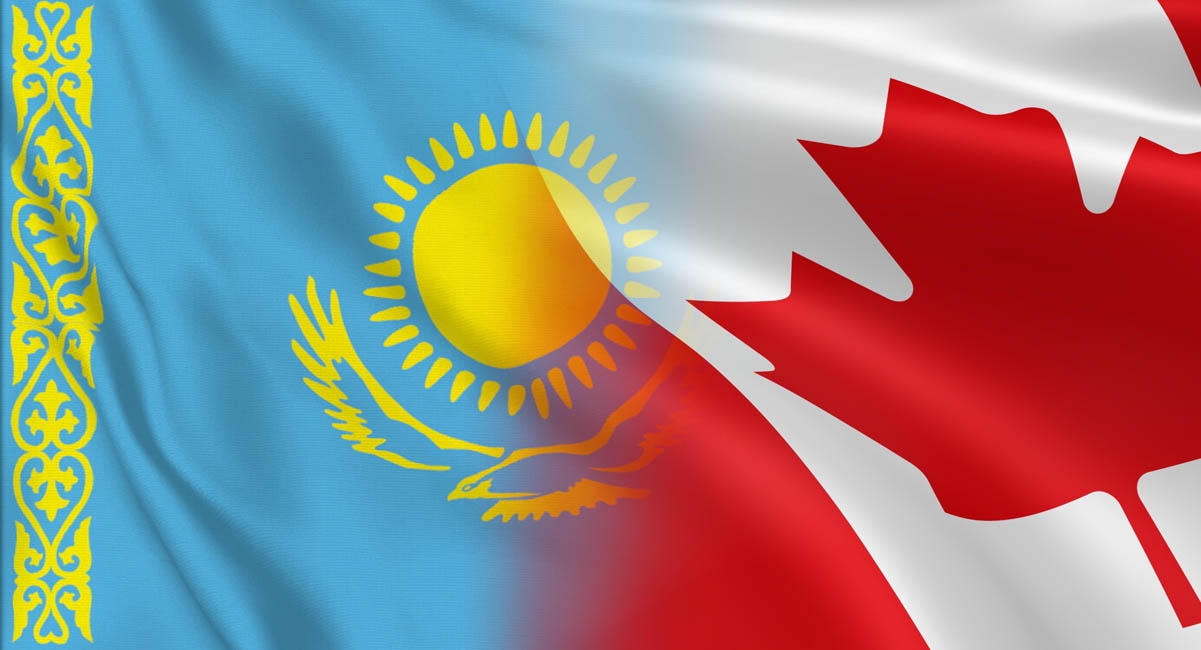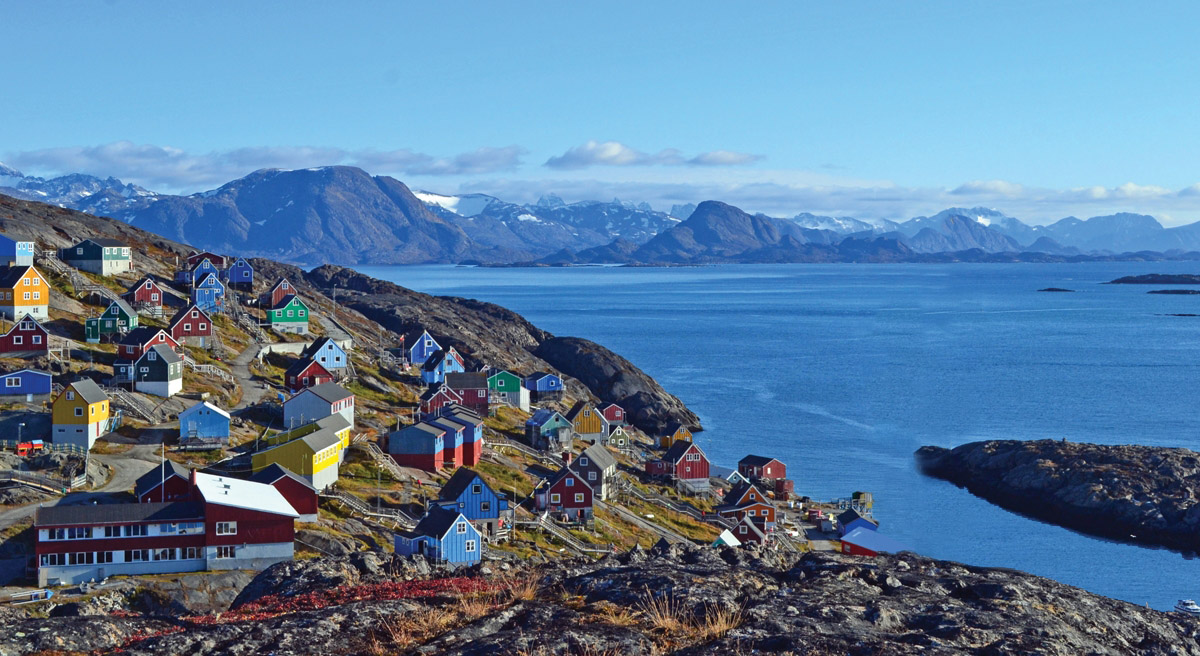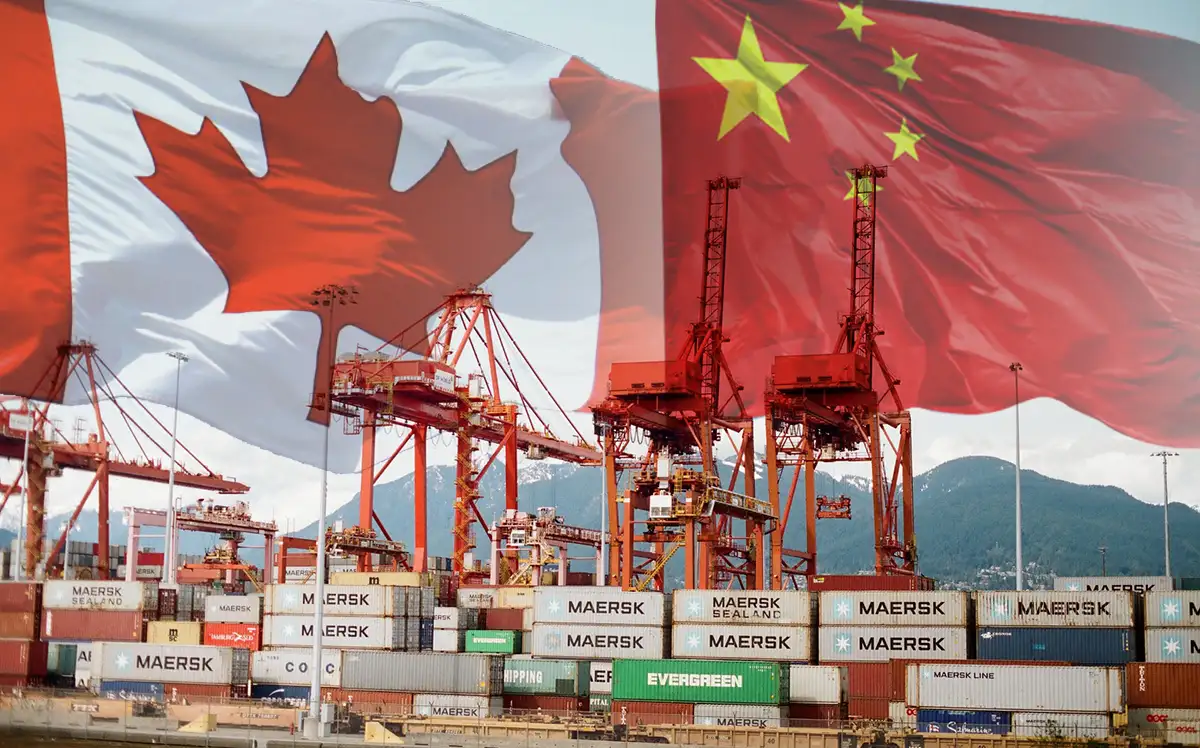
The Kazakhstan-Canadian trade relationship is growing.
Despite the trials, tribulations and disruptions that impacted the global economy during Covid cooperation between Kazakhstan and Canada remained strong and continues to grow. It might seem odd at first that Canada would have a strong and growing relationship with Kazakhstan which is Central Asia’s most influential country and a growing world middle power. However, Ottawa and Astana have close ties and the Kazakh Canadian business community ties are also strong.
Canada and Kazakhstan share many common interests and hold similar positions across a wide range of international issues including support for the Nuclear Proliferation Treaty (NPT)—the landmark international treaty whose objective is to prevent the spread of nuclear weapons and weapons technology, to promote cooperation in the peaceful uses of nuclear energy, and to further the goal of achieving nuclear disarmament and general and complete disarmament.
The NPT remains the fundamental cornerstone of the nuclear nonproliferation regime and is essential to advancing nuclear disarmament and the peaceful uses of nuclear energy. Both countries are committed to the strengthening of trade and economic cooperation and support multilateralism and the United Nations.
Canada-Kazakhstan bi-lateral business relations continue to grow
Kazakhstan-Canadian business grew to CAD $950 million over nine months in 2022. Kazakhstan's Canadian investments reached CAD $520 million at the end of 2021, which is 17 times more than in 2020, when they were only CAD $30 million. By the end of 2022 this amount will exceed CAD $1 billion.
Currently, the key interest of Canadian business is focused on the natural resources sector of Kazakhstan with more than 150 companies successfully operating in the country with the participation of Canadian capital (the majority of these investments are in the extractive sector of the economy). However, growth is expected to expand to healthcare, medicine, and the airplane sector over the next five years.
On November 25, 2022, the fifth meeting of the Kazakhstan Canada Business Council (KCBC) was held in Astana. More than 100 participants from both countries met to discuss the expansion of trade in energy, agriculture, transport, medicine and education.
To signify the importance of the trade relationship Stefan Dion, the Special Representative of the Prime Minister of Canada in the EU and Europe was invited as keynote speaker from Canada. Dion invited Kazakhstan businesses to continue to partner with Canadian companies to build on the growing success of the relationship. Canadian Senators Victor Oh and Jean-Guy Dagenais attended with a similar message, both in their public remarks and in break-out meetings after the main session. Business leaders from some of Canada’s major companies including Cameco Corporation, Geotech, Tenaris, Condor Energies, Bombardier, Hatch, and De Havilland also participated.
The Kazakh delegation included the heads of the Ministries of Foreign Affairs, Trade and Integration, Industry and Infrastructural Development, NAC Kazatomprom, AIFC, Kazakhinvest JSC, Development Center JSC trade policy of “QazTrade,” Foreign Trade Chamber Kazakhstan, as well as many national and private Kazakh companies.
A key takeaway from the conference was that commodity cooperation must continue to be a key priority of the bilateral economic relationship.
Participants discussed the potential of a collaboration under the formula “raw materials in exchange for technology.”
Kazakhstan’s favourable geographical position, large deposits of iron ores, nonferrous and rare metals, gold, diamonds, graphite, mica, various raw materials for the chemical industry, and production of building materials are a perfect fit as new projects for Canadian partners and investors. Other energy projects discussed were green hydrogen and cooperation in bringing that energy to global markets. Kazakhstan is one of the eight countries in the world with the highest export potential of green hydrogen.
Kazakhstan has 12 percent of the world’s uranium reserves and has competencies in the supply of nuclear fuel components, uranium powders, and fuel pellets for nuclear power plants around the world. Canada’s Cameco Corporation is the world leader in this sector and has been invested in partnerships in Kazakhstan for almost three decades.
Kazakhstan is looking to partner with Canadian companies as it further develops in the field of agriculture and works towards becoming an influential player in the global grain economy. Currently, it ranks twelfth in the world in wheat production and sixth in wheat exports.
The Kazakhs are looking at investment partnerships in the processing of agricultural products in food.
The Embassy of Kazakhstan in Canada is making efforts to expand the economic cooperation with Kazakhstan and Canadian businesses and has key experts at the embassy who can assist with any potential Canadian partner or investor partners.
Trade and economic development
Government Cooperation
Canada and Kazakhstan continue to collaborate on implementing WTO obligations, resolving outstanding disputes, improving the Kazakhstani investment climate, and promoting greater bilateral investment.
Bilateral Trade and Investments
Bilateral trade in goods grew to 620 million Canadian dollars billion in 2021, and both countries remain committed to further expanding the trade relationship. Kazakhstan’s economy had attracted a total of more than 6.7 billion CAD dollars in foreign direct investments from Canada. Currently, around 150 Canadian companies are operating in Kazakhstan.
Legal base of cooperation
The two countries create a welcome legal and regulatory environment for businesses to facilitate sustainable private sector growth, expansion of trade opportunities, and development. Toward that goal, Kazakhstan is considering the opportunity to expand trade and investments with Canada by signing Foreign Investment Promotion and Protection Agreement (FIPPA), Free Trade Agreement (FTA) and Air Transportation Agreement (ATA) between Kazakhstan and Canada.
Sanctions against Russia
Kazakhstan has historically close trade ties with Russia and Belarus. However, while Kazakhstan trades with Russia, they are taking all necessary measures to prevent the export or re-export of sanctioned goods to Russia. A special government monitoring group has been established to control the flow of the sanctioned goods. Control over the movement of sanctioned goods, capital of individual citizens and legal entities has been strengthened. A list of prohibited imported goods to Russia has been formed, as well as a list of Russian individuals and legal entities to which restrictions have been applied. A three-level system has been developed to track sanctioned goods and prevent their re-export.
Kazakhstan has established regular consultations on sanction politics with US and European Union. Three countries have appointed a Focal Points individuals to discuss sanction issues. It helps businesses to adjust the direct operational interaction regarding the emerging questions.
Relocation of Canadian business to Kazakhstan
Because of the Russian invasion of Ukraine, many multinational companies have left Russia (over four hundred companies) in compliance with the sanctions. Over fifty-five major companies such as Honeywell (USA), Fortescue (Australia), inDriver (USA) have either moved or opened new production facilities or moved their regional offices from Russia to Kazakhstan. Negotiations are currently underway with many Canadian companies, including Kinross Gold, McCain Food, Champion Pet Food, Hatch, De Havilland, Athletica Sport Systems, Bauer Hockey, and others to relocate to Kazakhstan. There are favourable conditions for these companies based on the AIFC (Nur-Sultan International Financial Center) and many of these companies are coming to the country because of the number of competitive advantages including tax preferences, individual approach to each project, the possibility of signing an investment agreement.
Transportation and logistics
Kazakhstan serves as an important transport hub connecting East and West. Over 70 percent of transcontinental routes go through Kazakhstan. For the last decades, Kazakhstan invested $30 billion in transport infrastructure, including the dry port of Khorgos on the border with China, the ports of Aktau and Kuryk on the Caspian Sea, its own terminal in the Chinese port of Lianyungan with access to the countries of Southeast Asia.
Kazakhstan has begun to diversify and expand its transit-transport and logistics capabilities. There are optimal transportation routes to the Middle East and the Mediterranean through the Trans-Caspian corridor, connecting countries such as China, Kazakhstan, Azerbaijan, Georgia, and Turkey. Kazakh Air recently ordered five Bombardier Q400 airplanes, and they have bolstered Kazakh Air’s regional network. Additionally, Kazakh airlines has confirmed its commitment to purchase five additional Q400 airplanes from De Havilland.
Mining sector
The mining sector remains a key component of the Kazakh-Canadian economic partnership. Kazakhstan has significant expertise and competence in supplying nuclear fuel components, uranium powders and fuel pellets for nuclear power plants around the world. In 1992, Cameco corporation became one of the first companies from Canada to come to Kazakhstan to develop the uranium field, and in the years since, received billions of dollars in revenues in Kazakhstan, creating tens of thousands of jobs in both countries.
Critical Materials
Critical materials such as nickel, copper, lithium, and cobalt are expected to increase fourfold by 2040. Kazakhstan has the sixth largest reserves of natural resources in the world and the tenth largest total mineral production (excluding oil and gas). Silver Bull Resources acquired the assets of the Beskauga gold-copper-silver deposit in Kazakhstan and created a joint venture with Arras Minerals. Avalon Advance Materials and Li-Metal are discussing cooperation with Kazakhstan on the exploration of lithium deposits.
Energy and Environment
Kazakhstan remains a trustworthy supplier of energy and commodities to the EU. The country is following the steps taken by the EU to increase its energy security and limit oil and gas imports from Russia. Even though Kazakhstan relies heavily on pipelines that pass via Russian territory and seaports, they are taking measures to enhance oil exports to the EU market via alternative routes.
About 30 Canadian companies are working in Kazakhstan’s oil and gas sector including Tenaris, Condor Energy, Geotech, Arctic Constriction, among others.
Hydrogen energy is another priority area both for Canada and Kazakhstan. International experts confirm that Kazakhstan is one of the eight countries with the highest export potential of green hydrogen. The German company Svevind plans to build a plant that will produce approximately two million tons of green hydrogen per year. Canadian companies such as SkyPower and Carbon Free Technology were invited to join this incredible project. To cover the shortage of electricity and achieve carbon neutrality in the economy by 2060, Kazakhstan is planning to build a nuclear power plant. (Recently, the European Commission decided to classify nuclear energy as «green» technology for investment).
Agriculture
Kazakhstan has 24 million hectares of arable land, almost 200 million hectares of pasture, and proximity to Chinese and Central Asian markets. Agriculture in Kazakhstan is becoming an increasingly profitable sector. Negotiations are underway with several Canadian companies including CanAgro Export, Feedlot Health (Telus), Buhler Industries, Bourgault, and DGH Engineering.
Space Exploration
Kazakhstan is a key player in space exploration and was the point of departure and safe return for Canadian astronauts David Saint Jacques who traveled from the Baikonur Space Launching Station to the International Space Station. Kazakhstan is pursuing cooperation with Canadian satellite company MDA-Maxar and satellite internet company Telesat.
Technology
Technology is playing a significant role in the diversification of Kazakhstan’s economy. To promote that goal the Kazakh government developed a national program – Digital Kazakhstan. Within its framework Kazakhstan is working with Canadian IT companies, bringing the latest Canadian technologies to the region.









